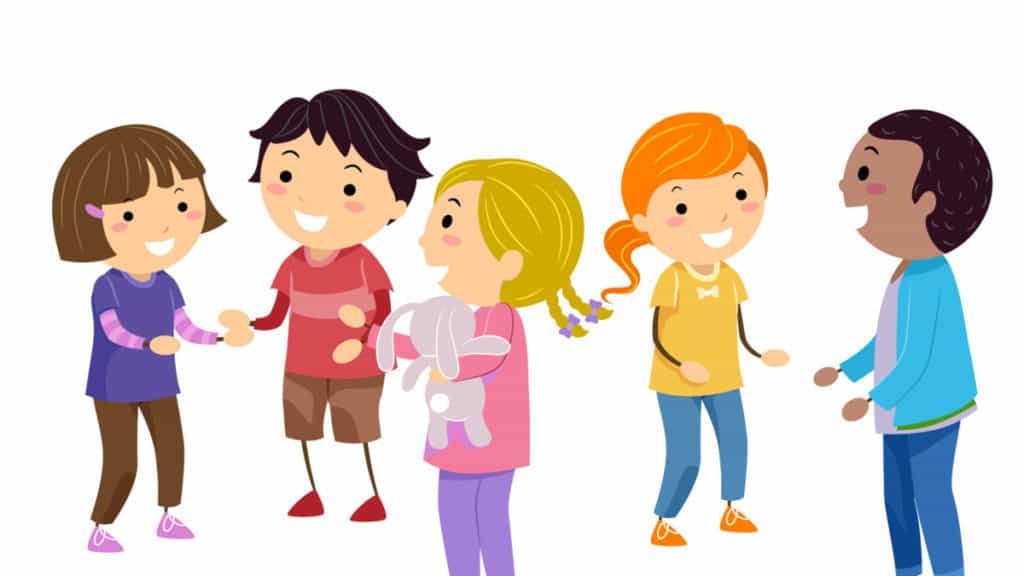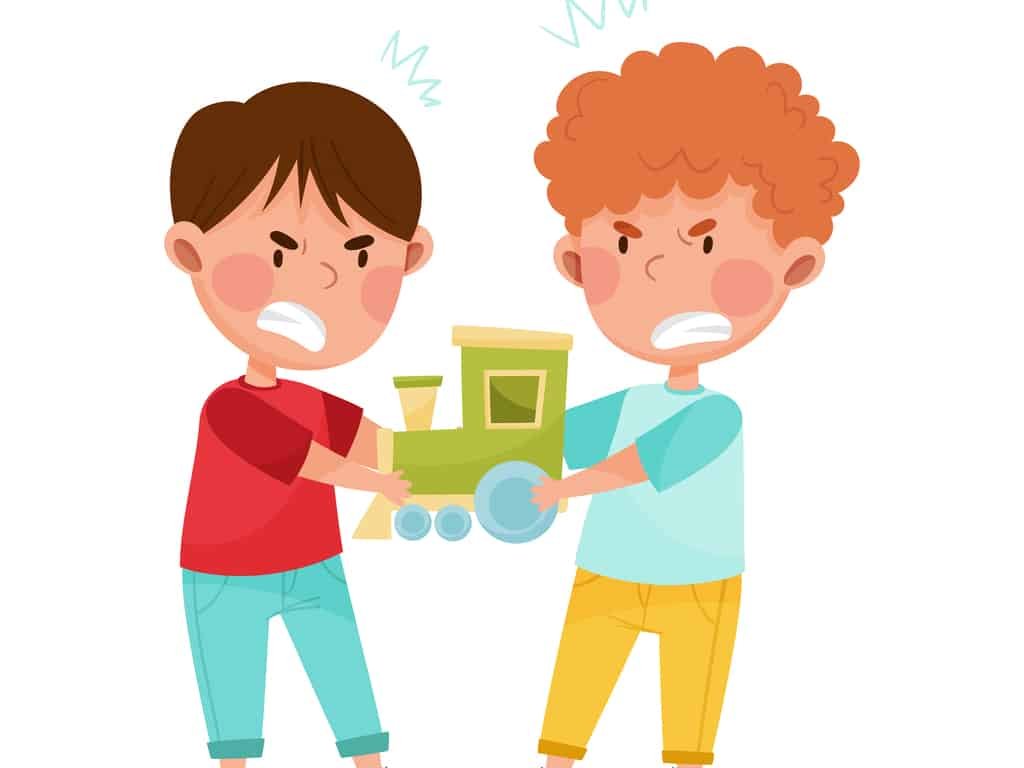Last Updated on January 7, 2024 by Gamesver Team and JC Franco

Everyone is gathered in the living room. The kids are making a noise, the adults are exchanging competitive quips, and there is a general atmosphere of excitement. What is about to happen? Board game night; that is what! And what game is on the agenda? The Game of Life, of course.
While my family will eagerly whip out the Game of Life board game and get playing, I have encountered parents who have had mixed feelings about the game. In fact, some have said that they can think of some reasons why kids should play the game and why kids should not. I thought it would be nice to share these with you.
Why Your Kids Should (and Should Not) Play the Game of Life:
| FOR | AGAINST | |
| 1. | Teaches kids to make good moral choices. | Teaches kids to focus on monetary gain. |
| 2. | Provides fun and excitement away from screens. | May encourage unhealthy competitiveness. |
| 3. | Encourages appropriate socializing (social skills development). | Could develop misconceptions about the way life “should be”. |
| 4. | Provides an opportunity for the family to bond. | May create the misunderstanding that investing is like gambling. |
| 5. | Provides a good understanding of real-life situations. | Creates the misconception that most of life is about work, work, and more work. |
These are the very reasons why some parents have mixed feelings about allowing their children to play the Game of Life. It must be said though that any misconceptions that a child may develop from playing a game can be thwarted if the game is played with adults that provide guidance. With a supervisor to provide help to deter kids from forming the wrong ideas and perceptions from the gameplay, there should be no problem at all.
Of course, it is up to each parent to decide what is suitable and not suitable for their child. If you want to learn more about the reasons why kids should and should not play the Game of Life, read on.
Should Your Kids Play Game of Life or Not?

As a parent, it really comes down to what you think and feel about a game before you allow your child to play.
If you haven’t played the game before, perhaps it is a good idea to get your hands on the game and play a round or two. You can decide for yourself whether or not the possible negatives are something to truly worry about or not. It is good to be informed either way, so let us take a closer look at both the reasons why your children should play Game of Life and why they should not.
Why Kids Should Play the Game of Life
I put a bit of time and effort into chatting to parents who think that Game of Life is a great game and those who think that it isn’t the best idea for their kids. I now have a fairly balanced understanding of how parents think and feel in this regard, and why. Below are a few of the reasons why and how children can benefit from the Game of Life:
1. Teaches kids to make good moral choices.
The Game of Life game is focused around good moral choices. Players are given the opportunity to make good choices and live a good lifestyle, which is then rewarded in the Life cards. This helps to establish a good understanding of how doing good can result in good outcomes.
2. Provides fun and excitement for kids, away from screens.
Parents long for ways to get their kids to experience a little less screen time and a little more time outside, reading books, or doing something that boosts brain activity and learning. Playing board games such as Game of Life is a great way to get the kids away from their screens for at least one hour.
3. Encourages appropriate socializing (social skills development).
When playing board games, children are taught how to communicate with others, how to handle their emotions and competitiveness, and how to behave kindly, regardless of whether they are winning or losing. Kids that play board games can learn how to socialize with greater ease.

4. Provides an opportunity for the family to bond – both young and old.
It is hard to find activities that the entire family wants to get involved in. Many board games are designed to draw both young and old together, Game of Life included. If you can arrange a family board game night once a week to play Game of Life, you can enjoy the opportunity to bond with your family without any of the family members losing interest.
5. Provides a good understanding of real-life situations that kids can truly learn from.
When kids play the game of life, it starts them off thinking about the cycle of life and how life situations approach them. For instance, kids start to think about going to college, getting married, the cost of household and auto insurance, the consequences of making poor choices, and so on. When kids start to think about these things from an early age, you can expect them to make wiser choices or at least be prepared for the kind of things that life is sure to throw at them.
Why Kids Should Not Play the Game of Life
The parents who feel that their kids should not play the Game of Life do have some very compelling reasons to back up their feelings. At least I thought so. Some of the compelling reasons that were shared with me include the following:
1. Teaches kids to focus on monetary gain.
Kids who play the Game of Life will learn to make decisions and choices that are based on how much monetary gain they can get from it. This isn’t always the case – there is nothing to say that this type of thinking will stick – but it is a fear that some parents have. It is important to note that this type of game could get children thinking that money is more important than living a good and happy life.
2. May encourage unhealthy competitiveness.
One main point of the Game of Life is to earn as much money as possible before you retire at the end. This is the main objective, and all players are aware of this before the game even starts. This type of gameplay can encourage children to be overly competitive. Many board games that focus on trying to gather as much wealth as possible end up in children feeling frustrated, angry, and even jealous. This can, of course, have a negative impact on a child’s experience.

3. Could develop misconceptions about the way life “should be”.
In the Game of Life, players can either choose a career or choose to go to college. They are also given the opportunity to get married and have children early on in the game.
The way the game is designed, it could provide children with the incorrect thinking that life is supposed to follow a certain pattern. Either you get married and have children, or you study and follow a career. In reality, there are many routes that life can take, and there should be no expected route.
4. May create the misunderstanding that investing is like gambling.
When players buy stocks in the Game of Life, there is a number printed on the stock card. This number is used almost like a lottery by the players. When other players spin the wheel and it lands on that number, the owner of the stock card with the matching number receives a lump sum. It is very similar to gambling and may get children thinking that investing is much like gambling, when it really is not like that at all.
5. Creates the misconception that most of life is about work, work, and more work.
In the Game of Life, players must spend the majority of their lives working hard and generating an income against all odds. And then they retire – the end. It can make children think that there is only work involved in life and that there is no enjoyment and nothing to be looked forward to at the end of life (or retirement stage).
In closing
Whether you allow your children to play the Game of Life or not is up to you. I must admit that the reasons why kids should not play Game of Life are compelling, but they do not mean that your children will be negatively impacted by the game.
Much like anything in life with children, you need to supervise play and keep reiterating a positive and healthy outlook and approach. When you do that, a game will not be able to tarnish their viewpoint or life view.

